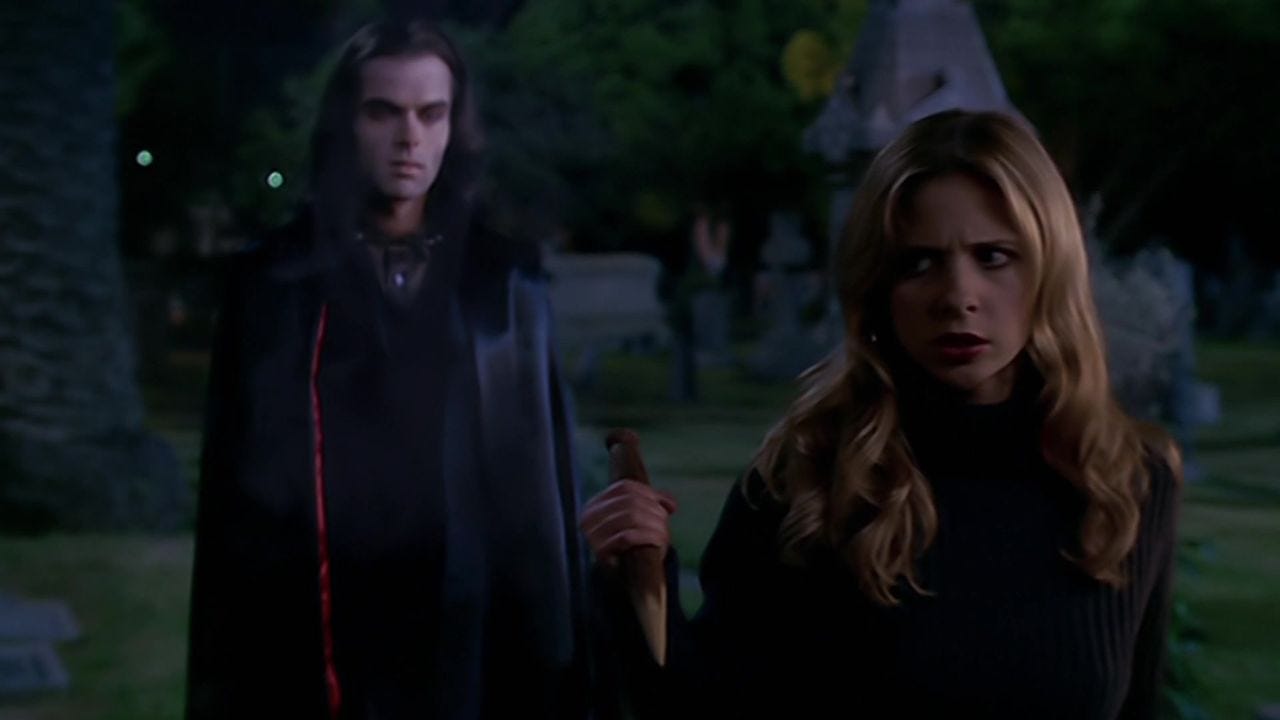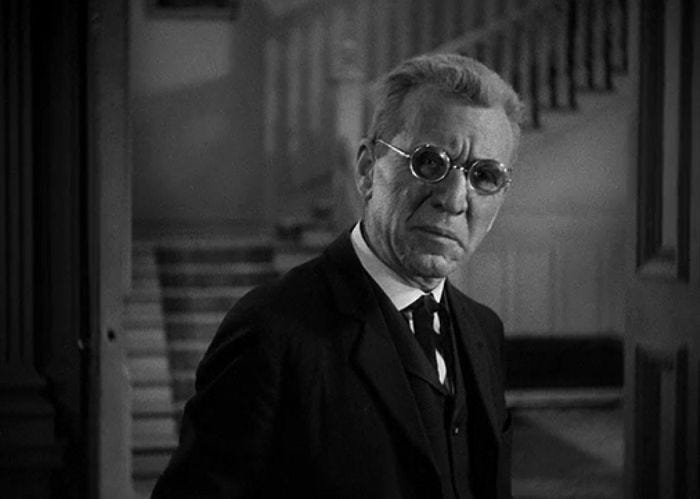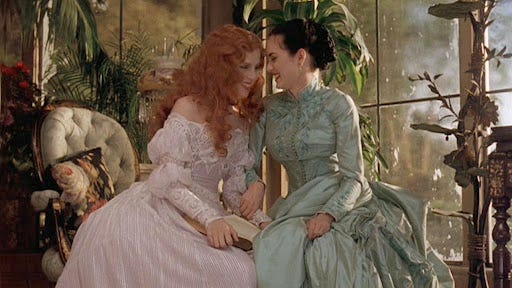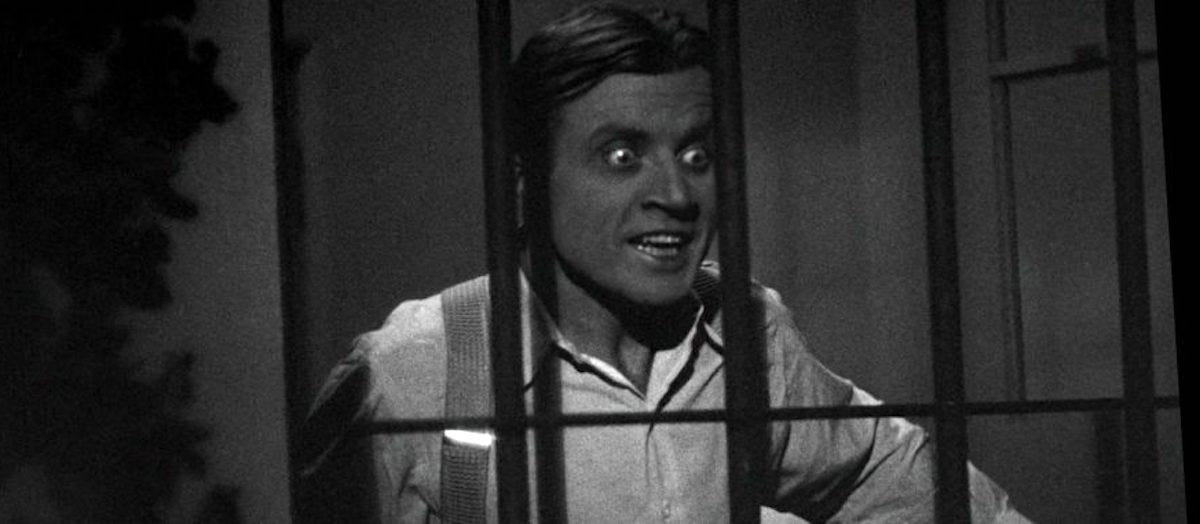Book Review: Dracula
This is the last vampirepost, I promise
Remy, masterful author of works such as Chili and the Chocolate Factory and Sivad’s Question, recommended I read the original ancient novel Dracula, by Bram Stoker back in July. Having watched the Red Letter Media review of the 1992 adaptation and played a few Castlevania games, I felt confident in my mastery of all vampiric lore, so I kept putting it off.
However, I ended up getting bored and picking up the book yesterday for no reason, finishing it in under 24 hours. Whatever else I have to say about it, at least it was a bit of a pageturner.
The plot

Dracula, an ancient soldier and aristocrat, modern vampire, decides he’s had enough of living in Transylvania, where the pickings of blood are slim and the people supersticious. What is he going to do about this? He’s gonna buy a bunch of lairs in London and get a fresh batch of victims that are fully unprepared for his entry, that’s what. On his side? Old riches, charisma and more powers than Silver Age Superman.
We don’t see his plans from his perspective, though. We see it in epistolary form, mostly journals and diaries, sometimes letters or telegraphs between characters, most of which I'll mention below:
Jonathan Harker, a solicitor initially sent to Transylvania to help him get ready for his trip to London. He does get to know Dracula somewhat, but it dawns on Jonathan that he doesn’t plan to ever let him leave. Jonathan manages to escape the castle at the last second.
Lucy, Dracula’s first british victim and Mina’s friend. She is a good person but doesn’t really do anything except sleepwalk right into Dracula’s clutches. Dr. Seward, Lord Arthur and the american Quincey Morris all propose to her, but she only has eyes for Arthur. It doesn’t stop the two rejected incels from dedicating their lives to fighting on her behalf, however.
Mina, Lucy’s friend and Jonathan’s fiancée. Despite the men around her constantly saying she’s a woman that needs to protected, she’s responsible for saving more asses than any other character, helped by her sharp wit.
Dr. Seward, a doctor in charge of a mental asylum. He once proposes to Lucy, but after being rejected, strives to become her friend. He often examines a patient by the name of Renfield, who likes eating live animals and calling Dracula his Master.
VAN HELSING, badass renaissance polymath man that loves keeping secrets and not explaining things, but nonetheless comes through with vampire lore. Unlike in most adaptations I’ve seen, he’s an old man who doesn’t particularly do anything strenuous.
The first section of the book features Jonathan’s stay at Dracula’s castle, getting to know the old man, and slowly discovering his bizarre powers and history. Once Jonathan finally escapes, he tries to forget about the whole affair, but Dracula travels to London as planned. Using his properties as vampire homebases, he drains Lucy’s blood every night, and her mysterious “illness” brings all the main characters into the fold, as the true culprit is drawn out.
They figure it out as a team. Van Helsing, with his knowledge of the Un-Dead; Dr. Seward, using Renfield as an oracle—for his moods seem to be related to Dracula’s actions at the time; Jonathan, giving the needed context that ties everything together; and two men who mostly help with the logistics, Quincey and Arthur.
As the plot progresses, Lucy dies and rises, needing to be slayed by her former suitors, and then Mina herself falls under Dracula’s influence, cursed to become a vampire if they do not defeat him before she dies. They face Dracula in his lair, but he manages to escape with his tail between his legs, shipped in a box-coffin back to his castle. He does not make it there, however, for Mina and Van Helsing help narrow down his location and bearing. Quincey and Jonathan finally slay him with big knives.
Quincey dies in the final fight, not to Dracula, but his Romani followers. Mina’s curse is lifted and all of Transylvania rejoices. In a very short epilogue, we see that they’re living happily ever after.
Historical notes
Before I properly review the book, I need to be fair and absolve Bram Stoker of a few objective issues that nonetheless are not his fault, being a man who lived in the nineteenth century:
Weird spellings: alternate ones like zoöphage, Buda-Pesth, and quite a few smatterings of æ are found throughout the book and are more than a bit distracting, but presumably the norm at the time. Some are even more understandable, like Un-Dead.
Epistolary format: though nowadays almost everyone I know is sick of it, I’m sure it was fresher at the time. I tried to keep an open mind, even though the format is stretched to its limits and there are a few throwaway lines about how great Jonathan and Mina are for being able to remember and transcribe extremely long and involved dialogue.
Questionable gender roles: not really a major issue, because Mina does end up being incredibly helpful at the end, but the male characters treat every single woman as a damsel in distress not to be worried with facts. It gets a bit annoying when having key pieces of information would save them from being in distress in the first place.
Things I Liked
Good horror writing

Dracula works really well as an anthology of horror vignettes. Early on in the story, Jonathan’s trip to the castle gets progressively scarier, in ways that build up the tension masterfully. From simply being a strange man in a strange Romanian land, to being gifted crucifixes and begged not to go by kindly old women, to travelling at night with a deathly pale coach who keeps stopping in the middle of the dark to work strange devices among blue flames, while wolves howl and approach the carriage.
Suddenly, away on our left, I saw a faint flickering blue flame. The driver saw it at the same moment; he at once checked the horses, and, jumping to the ground, disappeared into the darkness. I did not know what to do, the less as the howling of the wolves grew closer; but while I wondered the driver suddenly appeared again, and without a word took his seat, and we resumed our journey. I think I must have fallen asleep and kept dreaming of the incident, for it seemed to be repeated endlessly, and now looking back, it is like a sort of awful nightmare. Once the flame appeared so near the road, that even in the darkness around us I could watch the driver’s motions. He went rapidly to where the blue flame arose—it must have been very faint, for it did not seem to illumine the place around it at all—and gathering a few stones, formed them into some device. Once there appeared a strange optical effect: when he stood between me and the flame he did not obstruct it, for I could see its ghostly flicker all the same.
This holds up all throughout, even in lower stake (pun not intended) situations—anyone’s blood would be chilled when they’re told that a well-meaning old lady just removed all the garlic flowers from Lucy’s room (since they were clearly worsening her illness, she says), while the reader knows they were all that was holding Dracula back in the first place.1
My disbelief was never broken, either. This kept my attention going through all the objective flaws of the book, since Stoker made sure to spice up the exposition with horror, especially in the first two thirds of the book. There is a reason Dracula became legendary.
Enjoyable characters
Barring Dr. Seward, who was just okay, and kind of boring whenever his patient Renfield shows up, almost every character is a joy to read, with their unique writing or speaking styles.
Jonathan Harker and Mina in particular are always great, feeling both down to earth and eloquent without ever drowning the reader in repetitive, circular reasonings, something Van Helsing and Seward sometimes do. Every time we see their letters, the plot moves foreward.
Dracula’s dialogue is strong in the first act, though sadly he stops being an active presence after Jonathan escapes, outside of a single seething confrontation where he doesn’t say much.
There are also a few enjoyable one-time characters, like the old man at the graveyard that sits down and talks about grave myths with Mina and Lucy.
“Sacred to the memory of George Canon, who died, in the hope of a glorious resurrection, on July, 29, 1873, falling from the rocks at Kettleness. This tomb was erected by his sorrowing mother to her dearly beloved son. ‘He was the only son of his mother, and she was a widow.’ Really, Mr. Swales, I don’t see anything very funny in that!” [Lucy] spoke her comment very gravely and somewhat severely.
“Ye don’t see aught funny! Ha! ha! But that’s because ye don’t gawm the sorrowin’ mother was a hell-cat that hated him because he was acrewk’d—a regular lamiter he was—an’ he hated her so that he committed suicide in order that she mightn’t get an insurance she put on his life. He blew nigh the top of his head off with an old musket that they had for scarin’ the crows with. ’Twarn’t for crows then, for it brought the clegs and the dowps to him. That’s the way he fell off the rocks. And, as to hopes of a glorious resurrection, I’ve often heard him say masel’ that he hoped he’d go to hell, for his mother was so pious that she’d be sure to go to heaven, an’ he didn’t want to addle where she was. Now isn’t that stean at any rate”—he hammered it with his stick as he spoke—“a pack of lies? and won’t it make Gabriel keckle when Geordie comes pantin’ up the grees with the tombstean balanced on his hump, and asks it to be took as evidence!”
As previously said, the story is at its strongest when in “vignette mode”.
Things I Hated
Transcribed accents and the Helsing Problem
In $CURRENT_YEAR, I think we’ve all learned the valuable lesson to never, ever, in a million years transcribe accents. Because otherwise we’d suffer paragraphs such as the ones frequently found in Dracula:
’Ittin’ of them over the ’ead with a pole is one way; scratchin’ of their hears is another, when gents as is flush wants a bit of a show-orf to their gals. I don’t so much mind the fust—the ’ittin’ with a pole afore I chucks in their dinner; but I waits till they’ve ’ad their sherry and kawffee, so to speak, afore I tries on with the ear-scratchin’. Mind you,” he added philosophically, “there’s a deal of the same nature in us as in them theer animiles. Here’s you a-comin’ and arskin’ of me questions about my business, and I that grumpy-like that only for your bloomin’ ’arf-quid I’d ’a’ seen you blowed fust ’fore I’d answer.
This manifests to a lesser degree in Van Helsing’s poor grasp of the English language, since he’s Dutch. But he’s got a suspiciously expanded vocabulary, and he only ever seems to mess up in unintentionally comedic, caveman-like ways, like refusing to ever add ‘s’ to the third person singular.
Van Helsing himself is a big issue, for he’s a fountain of exposition every time he opens his mouth. To illustrate this and the previous issues, here’s something he says unbroken by narration:

Don’t worry about reading it. It’s 1,429 words.
This issue of long unbroken paragraphs, often without substance, is found throughout the story. Bram Stoker really did not care for natural dialogue, and every character is ready to give an Oscar winning monologue even in the middle of the action. If only they had worthwhile content every time.
The contrivance at the center of the story
There were THIRTY-SEVEN MILLION people living in Britain at the time Dracula was written.
However, Dracula manages to pick as his first victim a girl who’s tied by a single degree of separation—Mina—to Jonathan Harker, a man who knows his identity and many of his weaknesses.
He would not have been defeated otherwise, as Van Helsing would have no way of identifying the culprit without Jonathan’s context. So Bram Stoker got a bit lazy here.
Renfield
As previously mentioned, he’s an inmate in a private insane asylum run by Dr. Seward. Initially, we’re meant to be confused as to why we’re reading about him in the first place. He’s just some guy who gathers flies, has them eaten by spiders, then has the spiders eaten by birds, only to eat the birds and start the cycle over.
“Would you like some sugar to get your flies round again?” [Renfield] seemed to wake up all at once, and shook his head. With a laugh he replied:—
“Not much! flies are poor things, after all!” After a pause he added, “But I don’t want their souls buzzing round me, all the same.”
“Or spiders?” [Seward] went on.
“Blow spiders! What’s the use of spiders? There isn’t anything in them to eat or”—he stopped suddenly, as though reminded of a forbidden topic.
Unlike most of the otherwise pointless parts of the book, he’s never scary, since the doctors are nigh always in control of the situation, and Renfield is not often violent. We spend a large portion of the book in discussions between Seward and Renfield, which never lead anywhere and become increasingly repetitive.
He finally serves a purpose as he begins to claim he serves a Master, and his moods start being related to Dracula’s. He’s used as a rough hint towards his current plans by the characters once they discover this, but it doesn’t last long. He has a cool moment where he refuses to help Dracula because he hurt Mina, who had visited him once, and then he dies for it.
Then Mina takes his place, since, having a vampiric connection to Dracula, she can be hypnotized to roughly locate him, based on what Dracula can see and hear at the moment. Okay, so why the fuck did Stoker need Renfield in the first place?
Honestly, I never found him particularly interesting, nor Dr. Seward, though Seward at least helped the other characters many times. Were I an editor, I’d recommend cutting Renfield from the story altogether.
Anti-climax and a lame third act
Dracula is defeated the moment Jonathan’s diary makes it to Van Helsing. Everything else is just cleanup.
The book’s pacing really takes a dive once that happens, as Stoker starts only bothering with boring, pointless logistical investigation. They know who Dracula is, they know how to kill him, but finding him requires… tracking packages down to specific houses and locations.
“Your clients, sir, are happy in having so resolute a guardian of their confidence. I am myself a professional man.” Here I [Jonathan] handed him my card. “In this instance I am not prompted by curiosity; I act on the part of Lord Godalming, who wishes to know something of the property which was, he understood, lately for sale.” These words put a different complexion on affairs. He said:—
“I would like to oblige you if I could, Mr. Harker, and especially would I like to oblige his lordship. We once carried out a small matter of renting some chambers for him when he was the Honourable Arthur Holmwood. If you will let me have his lordship’s address I will consult the House on the subject, and will, in any case, communicate with his lordship by to-night’s post. It will be a pleasure if we can so far deviate from our rules as to give the required information to his lordship.”
I wanted to secure a friend, and not to make an enemy, so I thanked him, gave the address at Dr. Seward’s and came away. It was now dark, and I was tired and hungry. I got a cup of tea at the Aërated Bread Company and came down to Purfleet by the next train.
Dracula lacks allies outside of Romania, and he’s largely hidden in a box on a boat throughout this part of the story, so it’s a bunch of characters faffing about until they stumble on a location, then traveling to that location only for Dracula to be actually somewhere else, repeat.
This repetitive, soulless section takes up roughly a quarter of the book.
The ending feels impersonal. The titular vampire is in his coffin, unconscious. He is not even aware of his own impeding doom until the last second, no lines are exchanged.
I saw the Count lying within the box upon the earth, some of which the rude falling from the cart had scattered over him. He was deathly pale, just like a waxen image, and the red eyes glared with the horrible vindictive look which I knew too well.
As I looked, the eyes saw the sinking sun, and the look of hate in them turned to triumph.
But, on the instant, came the sweep and flash of Jonathan’s great knife. I shrieked as I saw it shear through the throat; whilst at the same moment Mr. Morris’s bowie knife plunged into the heart.
It was like a miracle; but before our very eyes, and almost in the drawing of a breath, the whole body crumble into dust and passed from our sight.
This mechanistic outcome to an originally inspiring and poetic story is incredibly disappointing.
And so ends Dracula. It wasn’t a particularly long book, but it felt long, due to the issues mentioned above.
7/10 - Alternatively engaging and dragging horror
I don’t regret reading it, but I feel like its value is more that of a historical curiosity than a compelling story, unless it’s well adapted and the cruft removed.
By subscribing to Kindle Unlimited, you’ll get nothing, because I read the entire thing on Project Gutenberg.
This is actually part of a bigger pattern, because Stoker loves repeating scenes, maybe for effect. Sometimes, it even happens three or four times. Lucy gets proposed to thrice; Dracula leaves the castle three times as Jonathan watches, before he challenges his fear; Dracula outsmarts Seward and Val Hensing multiple times and drinks Lucy’s blood, which of course leads to as many scenes of transfusions. I can’t tell if this is a good or bad writing decision, because none of the events I’m talking about were poorly written themselves.








